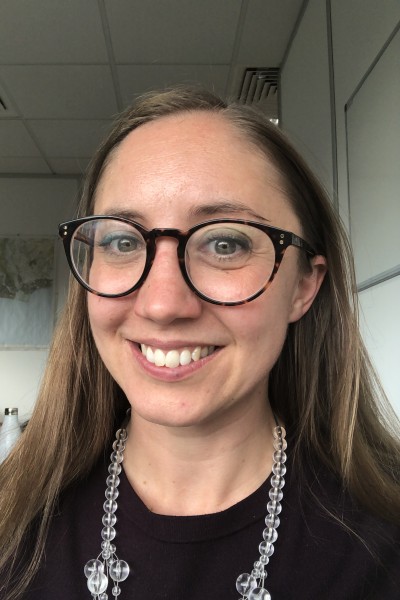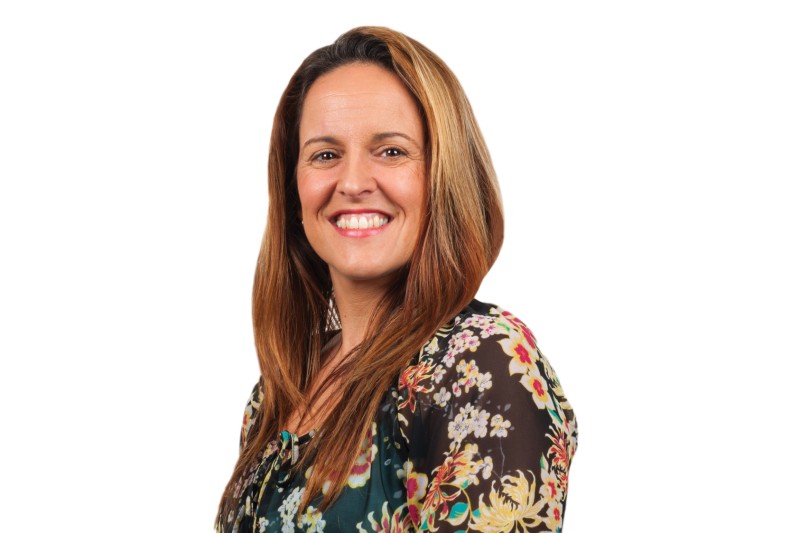One of the themes of Disability History Month 2021 is hidden impairments. This includes a range of unseen, long term conditions, such as ADHD, depression, diabetes, dyslexia, PTSD, post-Covid and many more.
Read the experiences of two BU staff – Dr Rebecca Edwards and Dr Vanessa Heaslip – who are both dyslexic and the positive impact that this has had on their roles at BU.
Dr Rebecca Edwards

“I'm Dr Rebecca Edwards, Senior Research Development & Support Manager in our central Research Office, known at BU as Research Development & Support (RDS). I provide executive managerial support to develop and implement BU's research agenda and strategy, enabling the university to meet its strategic aims, and ensuring excellence and efficiency in the delivery of research support. Day-to-day, this includes overseeing the team and implementing and managing initiatives to enable strategic research growth.
I was formally diagnosed with dyslexia when I was 17, just before I sat my A-Levels. I’d shown dyslexic traits all my life, but it wasn’t until I saw an educational psychologist and was properly assessed that the severity of my dyslexia was recognised (which as it turned out was far more severe than anyone anticipated). It finally made sense why I always seemed to have to work much harder than my peers, to keep my head above water at school and why reading books was an unappealing past time.
Dyslexia is perceived by many as an inability to read and write. But for me, that’s a misnomer, as it’s not a literacy problem per se, but a condition which means that your brain works differently to those who are more neurotypical. Difficulties typically associated with dyslexia are symptomatic of trying to fit that difference into the world dominated by those whose brains organise thinking in a more linear way. To be honest, that can be painful and disheartening; writing a 100,000-word PhD thesis was one of the hardest things I’ve ever done, as was the research papers that followed when I was a Post-Doctoral Researcher. However, now, I wouldn’t have it any other way.
Being dyslexic brings great strengths to my work at BU. Us dyslexics join up the dots differently, which can be really helpful for making new connections when developing research teams. We are hugely creative, which is really important for planning new initiatives or solving tricky challenges. Furthermore, the ability to see the bigger picture is essential for strategic planning, especially as I have an extremely visual understanding of the world and will quite literally think in big pictures.
Furthermore, the struggles I have encountered to be organised and to read and to write fluently, has enabled me to develop positive attributes for my professional life. These include a strong work ethic, empathy for those who are struggling conceptually and the ability to think critically. Most crucially for BU, it’s empowered me to take on the projects that others have said are impossible and deliver them through creative and innovative solutions.
History has not always been kind to us dyslexics; all too often we've been labelled as dim, lazy, disorganised and slow (that was just my experience of primary school!), whereas the diversity that we bring is essential for any organisation. We bring vision, creativity and an ability to spot opportunities – so let’s use Disability History Month to celebrate the dyslexics in our workforce.”
Dr Vanessa Heaslip

“I’m Dr Vanessa Heaslip, Associate professor and Deputy Head of Nursing Science within the Faculty of Health & Social Sciences.
Like Dr Rebecca Edwards, I also have dyslexia and believe that this helps my leadership as I typically ‘think’ outside the box.
I see things visually and holistically which really helps when it comes to problem solving and identifying new ways of working.
In terms of teaching, I’m really open with students (from undergraduate to PhD) regarding my difficulties and this really helps me to identify others who may have an undiagnosed additional learning need, but also to empathise and support them through testing.
I’m able to show others how hidden disabilities don’t have to hold you back but how strategies can be developed to manage any difficulties they may have.”